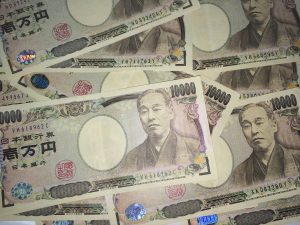As global travel restrictions coupled with voluntary shutdown and self-isolation advice grip society, Japan’s restaurants, hotels, and taxi operators – those on the frontline of declining tourism — face a sense of crisis.
In February, the number of foreign tourists entering Japan plummeted by 58 percent to 1.09 million, the lowest figure recorded since the 2011 Great East Japan Earthquake when tourist arrivals fell 62.5 percent.
Widespread domestic and international flight cancellations have forced Japan-based airlines to brace for a projected revenue loss of $2.8 billion between February and April. A fall in inbound tourism has had a ripple effect on major department stores and new car sales, which fell more than 10 percent in February from the previous year.
The Japanese government will lay the groundwork for an additional economic stimulus package after forming a panel of economists and business leaders to help mitigate the economic impact of the coronavirus pandemic. Discussions are expected to take place almost daily with fresh measures finalized in April. Prime Minister Shinzo Abe said the government’s priority is maintaining employment and business continuity, promising to take “drastic measures to put the Japanese economy back on a steady growth path.”
In mid-February the first phase of emergency measures featured 500 billion yen ($4.5 billion) in low-interest, collateral-free emergency loans aimed toward struggling small- to medium-sized businesses in the tourism industry. The government’s newly launched finance consultation service reported that 90 percent of calls came from small and medium business from a range of sectors who described having only a month’s worth of cash left. The second round of stimulus, announced on March 10, expanded financing support to other virus-hit sectors such as hospitality and manufacturing.
The coronavirus pandemic has caught the world’s third largest economy as it struggles to bounce back from an unpopular 2 percent sales tax hike in October as well as the damage from Typhoon Hagibis — the strongest typhoon to strike Japan in decades. During October and December, the economy shrunk at an annualized rate of 7.1 percent from the previous quarter as destructive flooding and strong winds caused $10 billion in insured losses.
Abe has also pledged support to parents taking a break from work to look after their children during school closures, offering a daily subsidy of 4,100 yen while also calling for utility payments to be deferred for one month for low income households.
Proposals for direct household incentives such as cash payouts or reversing the sales tax are being considered, but Deputy Prime Minister Taro Aso has raised doubts on the effectiveness of handing out cash and ruled out lowering the consumption sales tax.
The mammoth task of steering the economy back from the brink of recession was recognized by Economic Revitalization Minister Yasutoshi Nishimura, who said on Fuji TV that the economic impact could be worse than the 2008 financial crisis. Nishimura argued the need for “bold measures that shouldn’t be limited by what has been done before.”
In Tokyo, amid the daily struggle to find everyday essentials and concerns over panic buying and hoarding, the question on everyone’s mind is whether hosting the Olympics is a good idea. The Japanese government has resisted pressure to modify the Olympic schedule, stressing the Games will go ahead “as planned.” According to SMBC Nikko Securities, if the outbreak is not brought under control, cancelling the Olympics would reduce Japan’s annual GDP by an estimated 1.4 percent, totaling 7.8 trillion yen. Alternatively, hosting the Olympics with no spectators would also amount to losing 4.8 million tickets, which have already been sold.
On Wednesday Aso, who is no stranger to stirring controversy, stated that the Tokyo Olympics are “cursed.” He highlighted that every 40 years the Olympics has been foiled by world events. Aso referenced the time Japan was awarded the 1940 Summer and Winter Olympics, which were axed due to World War II. The 1980 Moscow Olympics is also remembered for the U.S.-led boycott in protest over the Soviet Union’s invasion of Afghanistan, which saw 65 nations refused to take part in the tournament.

































